This article was co-authored by Evanne Torrecillas. Evanne Torrecillas is a School Counselor with over four years of experience in education. She specializes in working as a mental health advocate with middle school students and their caretakers. Evanne holds a BA in Political Science from The University of California, Berkeley and an MS in Counseling with a specialization in School Counseling from California State University, Sacramento.
There are 17 references cited in this article, which can be found at the bottom of the page.
wikiHow marks an article as reader-approved once it receives enough positive feedback. This article received 11 testimonials and 100% of readers who voted found it helpful, earning it our reader-approved status.
This article has been viewed 83,956 times.
Don't be worried about your first year of middle school. Of course, everybody has to go through it. It's really nothing to worry about. Think of it this way: you just finished the easiest test that you had to work on for 5 to 6 years. This test is only two or three years long and will be just a little harder. That should make you feel a little better! Now that worry is out of the way, let's get started!
Steps
Before School Starts
-
1Make sure to have everything you need. Some things you need are your school clothes, supplies, and anything else you think is necessary. If you don't have everything you may not perform as well. Remember to double check at home and review the list![1]
-
2Change your wardrobe. Middle school can be an excuse to update your wardrobe! Start with clearing out your closet. If an article of clothing doesn't fit you anymore, find an organization to donate that article of clothing to. Clothes that are torn, ripped, or damaged should be thrown away. This should help you have space for new clothes you'll purchase. Going shopping alone can be difficult. Have somebody else tag alongside with you to help out! The best people to bring with you is someone who is in or was in Middle School. They know what it's like. Make sure all clothes you buy are approved by your parents.
- A good rule of thumb is to buy clothing you know fits your style, regardless of how others may feel about your purchase choice. Don't let others tell you what you have to wear (unless it's your parents disapproving of something).
Advertisement -
3Get school supplies. School supply shopping is a little harder than clothes shopping. To have everything you need, copy the supply list down from your school's website or a good list that you think you'll need! The list also may have been mailed to you. The best way to save money on shopping is to go to a cheaper store like Dollar Tree, (etc.). But anyway, you should get what is really needed. Like pencils, pens, erasers, binders, highlighters, etc.
-
4Make the most of orientation day. On orientation day, look around (if they don't give you tours). Listen to your principal and teachers of classes you have to take, you'll get a feel for what they expect, personality and how they want things done.[2]
On the First Day
-
1Pick out your outfit the night before. You don't need to rush in the morning just because you spent half an hour picking out your outfit! Go for something between casual and original. But remember you are making first impressions so what you wear kind of dictates a part of your personality, so don't go far outside your comfort zone.
-
2Avoid feeling that you have to wear makeup. Expectations are overrated. You just got out of elementary school, no need to wear makeup or do anything fancy with your hair. If you're not comfortable with it, don't do it! All these middle school girls you see in magazines have makeup on solely for the advertisements. Going your first day with no makeup is quite the bold move itself, as it shows you have confidence in yourself and that you don't need makeup to attract attention!
-
3Take a shower in the morning. This will wake you up and make you smell fresh and feel great. (Remember some nice deodorant to top it off.)[3]
-
4Take only what you need. You do not need to haul your whole home with you. All you really need for your first day really is a few snacks, a pencil or two and the basic supplies. Bringing extra pencils and snacks may be helpful, but not necessary.
-
5Seek help from people already in middle school. The higher grades don't bite! If you're feeling daring enough, go and try to make some friends who are older than you, as they have gone through your grade and may be able to give you some pointers.
-
6Make some friends while you're waiting for school to open. Mingle with some other stranger that may be hanging around too.[4] If you can't find a loner to make friends with, go take a look at a map of the school and try to get the know the place, after all, you're going to be spending a few years here.
6th Grade/Year 7 (for Tweens)
6th grade (called Year 7 in the UK and Australia) is a time of change. You're probably going to be in a new school which is going to be larger than your small elementary school. 2-4 elementary schools are going to combine into one middle school, so be prepared to see a lot of new faces. If you're in a secondary school, be prepared to see a lot of older students in your school. If you're only 11 or 12 years old, seeing a bunch of 14-18 year-olds may feel strange.
-
1Review concepts you have learned in 5th grade/Year 6. You have probably learned quite a lot of new concepts in grade 5, so you should practice these over the summer in advance. You are likely to forget them over a long summer vacation, so review these beforehand.
- Review multiplying and dividing fractions, graphing lines on coordinate planes, finding the slope of a line, finding the volume of triangular prisms and cylinders, finding the area and circumference of a circle, solving exponents with no variables, drawing different graphs (bar graphs, pie charts, histograms, line graphs), and other things you have learned in math.
- ELA curriculum differs. Just read a lot of books during the summer, since your homework will increase quite a bit this year. You may have homework for every subject (math/maths, language arts, science, history/social studies) instead of just main subjects like math/maths and language arts.
- For science, review things like easy chemical equations, a few elements on the periodic table, different types of plants, classification of animals, photosynthesis, etc.
- If you have computer science class, refresh your text coding and block coding skills. Many schools teach Python or JavaScript as a first text coding language, so be sure to read up on online tutorials for that.
-
2Take a tour of your middle school a few weeks beforehand. Most middle schools in the U.S. have lockers, more classrooms, and a different layout than your elementary/primary school. There may be more rules and restrictions than your elementary/primary school.
- So, you should prepare for this by locating your classrooms, where the gym room is, and where the bathrooms are.
- You will be assigned a locker a few days before school starts or on the first day, so don't worry if you don't know how to open a locker! The people in your grade probably don't know either, and you can always ask older students or a teacher for help.
- Some schools in the UK have lockers, while others don't. If your school doesn't have lockers, you may need to bring your bag back and forth for each class, or you may store items in a cloakroom (this term can also mean a lavatory/washroom/bathroom in the UK, but in this context it means a place to store items).
-
3Deal with puberty at school. Puberty is annoying and embarrassing, but it's one of the steps that transforms you into a young adult. Many females start their periods when they start middle/secondary school, and many males have just started puberty at this age.
- Deal with acne. Acne like pimples, blackheads, and whiteheads are embarrassing for some tweens. Don't worry- just wash your face twice a day (before and after school) and apply pimple cream on. Hydrocortisone cream, Salicylic acid or glycolic acid, benzoyl peroxide, or a sulfur-based cream are good creams to remove pimples.
- Cope with developing breasts as a kid or tween. If you have the signs of developing breasts, your chest may feel tender and hard. This is to be expected, to wear a comfortable training bra. Buy from brands like Hanes, Fruit of the Loom, and Maidenform for training bras.
- Deal with a period in middle/secondary school. Periods at the ages of 11-12 are normal. In fact, that's the average age of menstruation in females! Be sure to use break times wisely to change your tampon/pad every 2-4 hours.
- Deal with erections. Males might worry about erections. They are very noticeable through your pants/trousers! Erections happen when your penis's tissue is engorged with blood. [5] This makes your penis hard, stiff, and uncomfortable. This can happen if you're thinking of romantic thoughts, but it can happen any time. Hide your erection by covering it with a bag, think of unromantic things, or pinch yourself to distract yourself using the pain.
-
4Get used to the different schedule. In elementary/primary school, you likely had a small class of around 15-25 students. In middle school, this can increase to 20-30 students. You will also need to switch classrooms, since you don't have only one teacher that teaches all of the subjects. You will have a separate maths/math, language arts, science, history/social studies, physical education/gym, computer science, club, and homeroom teacher.
- Get used to quickly bringing your textbooks and school supplies from classroom to classroom. If you need to bring your bag back and forth, take all of your textbooks and stationery, put it in your bag, take your bag, and walk to your next class. If you use a locker, get to your locker, open it, take the items for the next class out, put in unneeded items, and go to your next class.
- Know how to open your locker.
- Choose an elective. An elective is similar to a club that you may have joined in elementary school. Electives also take the place of required courses. Clubs happen after school, and not during the day as opposed to electives. [6] [7]
- Get to know your different teachers. In elementary/primary school, you probably had 1 or 2 teachers that taught every subject. Now, you will have different teachers that specialize in each subject. Participate in every teacher's class for the teacher to notice you and give you a good participation grade. If you're applying to a private high school (for people in the U.S.), some of the teachers might notice you and write a good recommendation for you when you get to 8th grade.
-
5Deal with gym class. Gym class in middle school will be different than PE in elementary or primary school. Yes, you probably had a PE/gym teacher in elementary school too, but you didn't have to change into gym clothes. You also didn't need to worry about puberty and other awkwardness.
- If your teacher allows you to wear gym clothes to school, you won't need to change. Just make sure you're wearing comfortable clothing (a sweatshirt/T-shirt, shorts/sweatpants) to school. If you have a gym uniform, wear that to school.
- If you need to change during gym class, face the wall. You don't want to catch others staring at you (and if they are, just ignore them) or yourself staring at others. It minimizes the awkwardness. If you're really shy or are menstruating, go into a bathroom stall to change. This helps if you need to change both your menstrual products and your gym clothes.
- If you are on your period, be sure to pack enough hygiene products in your gym bag. Pack a few tampons, pads, extra pairs of underwear, and wet wipes. If you don't want anyone to see your feminine products, change in a bathroom. There are enough bathrooms for people to use, so you won't be hogging up the bathroom if you use it for just a few minutes.
- If you are afraid of getting another inconvenient erection in the changing room, count down from 50 to 1 or 100 to 1. Think of non-romantic things, like the test that's due or what you're going to do when you get home.
- Don't compare your bodies in the changing room. During puberty, some tweens like comparing their bodies in the changing room. Some people may want to look "handsome", "attractive", "kawaii" or "beautiful". Don't do this. Not only is this unnatural, it is also not good for your self-esteem.
-
6Review things you are learning in 6th grade/Year 7. Middle school/secondary school subjects get more complicated. You should also study for tests early so you don't have to memorize pages of information one day before an exam. You probably have assigned homework or worksheets, which can take from 60 minutes to 95 minutes (1 hour 35 minutes) of time to complete depending on the school's curriculum. Private schools usually teach harder curriculum and hand out more homework, so you will need more time to complete it. Take time to do your homework to prevent silly mistakes or sloppy handwriting.
- In math, you may want to review measures of angles, classifying triangles, PEMDAS (Parentheses, Exponents, Multiplication, Division, Addition, Subtraction) or BODMAS/BIMDAS (Brackets, Orders/Indices, Division, Multiplication, Addition, Subtraction), transformations of shapes on a coordinate plane, etc. If your school teaches harder curriculum (especially if it's a private school), you can review pre-algebra and easy algebraic equations to solve.
- For language arts, practice writing short stories and more refined essays. You should also research Latin and Greek roots in words, since this is a common theme in 6th grade/Year 7 ELA curriculum. For example, jur- is a Latin root that means relating to law. "Jurisdiction", "judge", and "jury" have "jur" and "jud" roots. [8]
Chron- is a Greek root meaning "time". "Chronological", "chronology" [9]
In writing, you should practice using direct and indirect objects, gerunds, participles, and other things you are learning in 6th grade/Year 7.
- Read books like Esperanza Rising, A Wrinkle in Time, The Hobbit, A Tale of Two Cities, and Allies for school reading list books. Your school may read some of these books, so take notes on the characters, theme, and plot of the story. Some schools with advanced curriculum may read Shakespeare (with a simplified version and an original text version) like Julius Caesar. Make sure to read online summaries to summarize the book and to take clear notes on the characters, plot, and themes of the novel. [10]
- In science, get used to learning about biology and a bit of physics. Some schools teach 6th graders a little chemistry, so be prepared for that. Review and study cell functions, the parts of a cell, the human body, animal classification, kinetic and potential energy, ocean currents, water movement, and other types of science you might be learning about. [11]
- In history, you might learn about world history. Review and study your notes on topics such as the Industrial Revolution, Ellis Island, immigration, the Enlightenment, the American Revolution, the French Revolution, and other topics.
- If you have computer science class, review your programming knowledge. You might need to use binary code for more advanced classes, so touch up on that if you need to.
-
7Use your life skills for school. You'll need to be more independent in the sixth grade/Year 7. You should know how to clean up your room, stay organized with assignments, and take care of your basic hygiene.
- Deal with bullying. Being bullied is scary and never fun, so you'll need to report the person bullying you to a teacher.
- Deal with peer pressure. Peer pressure is when people around you pressure you to do something. Don't listen to bad peer pressure. Don't listen to anyone that tells you to do unethical or illegal things like bullying others, taking drugs, gambling, stealing something, vandalizing property, etc. You should tell a trusted adult about this immediately if they tell you to do illegal activities.
- Deal with gossip. Gossiping is when someone tells untrue things about another person. This is harmful, and you should ignore people who gossip. If someone gossips about you, ignore them or tell a trusted adult at school. You shouldn't gossip about others too, since it is mean and harmful to spread untrue rumors that can harm a person's reputation.
-
8Take care of your personal hygiene. You should brush your teeth twice a day (3 times if you have braces), wash your face once per day, comb your hair before you head to school, and bathe or shower once every day (or every other day depending on how much you sweat).
- Shave your hair. During puberty, hair will grow on your armpits, chest if you're a male, your private parts, legs, face, and sometimes your back. Learn how to shave your armpit hair, leg hair,pubic hair, your facial hair, and shave your back if you have hair in these areas.
- If you're in puberty, wash every day instead of every other day if you didn't yet, since your body will produce more oil because of the hormones. Remember to wash your genitals with clean water.
- Brush your teeth after every meal you eat. If you have braces, check this article for information on how to take care of your braces at school.
- Wash your hands with soap and water every time you go to the bathroom. During times like the coronavirus pandemic, this is especially important. You should also wash your hands before you eat something, like a snack or lunch. Use hand sanitizer to freshen up if there isn't a sink nearby.
-
9Know what to pack inside of your backpack for the first day of sixth/Year 7. Since homework is going to increase a lot in 6th grade/Year 7, you'll have more school supplies. If your school gave out a school supply list, tell your parents to buy your school supplies. You might also need a computer, which your school will likely supply for you if you don't have a home computer at home. Usually, schools only allow school computers to be used in class, so even if you don't have a home computer, you can receive one from the school. Basic things you will need include: [12]
- Pencils (both wooden or mechanical pencils are fine)
- Pens
- Highlighters (useful for taking notes)
- Erasers (scented erasers, plain pink or white erasers, puzzle erasers, or electric erasers are commonly used)
- Some extra colored pencils
- Some extra crayons
- A pair of scissors
- A glue stick
- A ruler
- A protractor (to measure angles with)
- A compass (to draw circles)
- A pencil case to put the stationery in
- Plain white paper (for projects or drawing)
- A graph paper notebook or individual sheets of graph paper (for math when drawing on coordinate planes)
- At least 3 notebooks (depends on how many subjects are taught)
- A planner (to keep track of assignments, tests, and due dates)
- Some folders for classwork and homework
- School books (depends on the school, so check your supply list to make sure!)
- A binder (to put papers into)
- A large backpack (a rolling backpack or a regular one can be fine)
- Headphones or earbuds (for computer usage)
- A reusable water bottle to prevent yourself from getting dehydrated
- Any medication you may need, like an asthma inhaler, diabetes medication and pumps, ADHD medication, an EpiPen for allergic reactions, etc.
- Period supplies (a few tampons, pads, extra underwear, wet wipes, period pain medication for cramps)
- A pack of small tissues (in case you need to wipe their hands, face, or nose)
- A small bottle of hand sanitizer (especially important during the coronavirus pandemic)
Note: Some schools give out the school supplies and school books on the first day of school (like some private schools). If this is the case, just bring some extra pencils, erasers, a water bottle, and a lunch. They will be handed school supplies when they arrive at school, so packing extra is unnecessary.
-
10Be ready to start the first day of middle/secondary school. Starting a new school is always nerve-wracking, but starting a completely different school at a different grade level is even harder. Calm down if you are getting nervous, because long-term stress isn't good for your body. Understand that all of the 6th graders/pupils in Year 7 are new, and you aren't the only new student there.
- During each class, your teachers will probably explain the classroom conduct, office hours (when the teacher is available; usually for students to ask questions), what you will be learning about, and how to contact them.
- Be sure to introduce yourself. Say basic information like your name, your age, your family, and what you did during the summer. If your teacher asks you to write a paragraph (or a few paragraphs) about you, you should make it more detailed. Write what hobbies you enjoy doing, which school you went to during elementary/primary school, and what clubs you joined during your previous school.
- Try to make friends. Sit next to a person that is alone, or say hi to everyone during break or after school. Later, the school will probably allow students to sign up for clubs, so you can meet people with the same interests as you.
7th Grade/Year 8 (for Tweens)
7th grade (called Year 8 in the UK and Australia) is going to be easier. It's still going to be challenging for some tweens, since puberty, friendship problems, and overscheduling can be a lot of things to deal with. You're going to be more responsible and you're going to learn more things. Some schools allow electives in 7th grade (Year 8), while others allow them to choose in 6th grade (Year 7).
-
1Review the things you've learned in 6th grade/Year 7. You've probably learned more challenging curriculum in 6th grade/Year 7. You probably needed to get used to managing your own time, studying for more exams and tests, and turning in more homework if you didn't experience that in late elementary/primary school. Since it's easy for you to forget more information, you'll need to review a bit during the summer to prepare.
- For math, review measures of angles, classifying triangles, PEMDAS (Parentheses, Exponents, Multiplication, Division, Addition, Subtraction) or BODMAS/BIMDAS (Brackets, Orders/Indices, Division, Multiplication, Addition, Subtraction), exponents and square roots, translations, rotations, and reflections of shapes on a coordinate plane, etc. If your school teaches harder curriculum (especially if it's a private school), you can review pre-algebra and easy algebraic equations to solve (e.g. 2x + 5 = 13).
- For language arts, review parts of speech like transitive and intransitive pronouns, diagramming sentences, passive and active voice, etc. You should also read a few poems if you're studying poetry at school. Find out the meter and tone of the poem, and what rhythm (e.g. A B A B) the poem has. You may need to do more research papers in the following years, so go online and see how to write a research paper for more information.
- For science, review different types of plants, a plant's structure, cells, parts of a cell, kinetic and potential energy, the human body, and other concepts you may have learned in 6th grade/Year 7.
- For history, review topics like the Industrial Revolution, the Enlightenment, the French and American revolutions, and Ellis Island.
- For computer science, review your text coding skills. Many schools teach students Python or JavaScript since they are easier programming languages to comprehend.
-
2Review subjects that you are learning in 7th grade (Year 8). You're probably going to learn more subjects in grade 7/Year 8, so you should take around 20 minutes to review some things every day. This way, you won't need to cram everything in your head right before a test. You probably have assigned homework or worksheets, which can take from 70 (1 hour 10 minutes) minutes to 115 minutes (1 hour 55 minutes) of time to complete depending on the school's curriculum. Private schools usually teach harder curriculum and hand out more homework, so you will need more time to complete it. Take time to do your homework to prevent silly mistakes or sloppy handwriting.
- In math, review how to solve proportions, solve linear equations, find the x and y intercepts of an equation, drawing box-and-whisker plots, drawing histograms, etc. Some schools (like competitive private schools [13] ) teach algebra in 7th grade. So, practice graphing parabolas, solving quadratic equations, and solving a system of equations with two variables.
- For language arts, focus on genres of literature, poetry, writing a research report or a persuasive essay, comparing and contrasting, and other components. [14]
- Read books like The Diary of a Young Girl, Tuck Everlasting, Restart, Where the Red Fern Grows, The Call of the Wild, Bridge to Terabithia, and The Outsiders if you have free time. If your school is reading some of these books, review the plot, the main characters, and the theme of the novel. Make sure to read online summaries to summarize the book and to take clear notes on the characters, plot, and themes of the novel. [15]
- For science, touch up on genetics, evolution, the human body, animal classification (Kingdom, Phylum, Class, Order, Family, Genus, Species), kinetic and potential energy, elements in the periodic table, etc. [16]
- For history, review and study the American and French revolutions, imperialism, medieval England, William the Conqueror/the founding of England, the Haitian revolution, or Ancient China.
- For computer science, you may want to touch up on binary code and practice coding simple text games. Use functions, print statements, if statements, and other pieces of code.
-
3Choose an elective. Middle schools/secondary schools often have a wide variety of electives for students to choose. You can choose something that you enjoy or want to learn about. It's normal for interests to jump around during middle school- there's still room for developing interests. During 8th grade and high school, however, you may want to settle down, since you'll need to decide on a career path.
- Middle schools offer a lot of electives- some include journalism, Spanish, engineering, speech and debate, visual arts, performing arts, graphic arts, orchestra, and craft electives.
-
4Use your life skills for school. You're probably very independent by ages 12-13. You should know how to clean up your room, stay organized with assignments, study for tests, take care of your basic hygiene, and deal with conflict.
- Deal with bullying. The bully might physically or emotionally hurt you (making fun of you, calling you mean nicknames, saying untrue things about you/gossiping). Being bullied is scary and never fun, so you'll need to report the person bullying you to a teacher.
- Deal with negative peer pressure. Don't listen to anyone that tells you to do unethical or illegal things like bullying others, taking drugs, gambling, stealing something, vandalizing property, etc. You should tell a trusted adult about this immediately if they tell you to do illegal activities.
- Deal with gossip. Gossiping is when someone tells untrue things about another person. This is harmful, and you should ignore people who gossip during breaks and lunch. If someone gossips about you, ignore them or tell a trusted adult at school. You shouldn't gossip about others too, since it is mean and harmful to spread untrue rumors that can harm a person's reputation.
-
5Take care of your personal hygiene. You should brush your teeth twice a day (3 times if you have braces), wash your face once per day, comb your hair before you head to school, and bathe or shower once every day (or every other day depending on how much you sweat).
- Shave your hair. During puberty, hair will grow on your armpits, chest if you're a male, your private parts, legs, face, and sometimes your back. Learn how to shave your armpit hair, leg hair,pubic hair, your facial hair, and shave your back if you have hair in these areas.
- If you're in puberty, wash every day instead of every other day if you didn't yet, since your body will produce more oil because of the hormones.
- Brush your teeth after every meal you eat. If you have braces, check this article for information on how to take care of your braces at school.
- Wash your hands with soap and water every time you go to the bathroom. During times like the coronavirus pandemic, this is especially important. You should also wash your hands before you eat something, like a snack or lunch. Use hand sanitizer to freshen up if there isn't a sink nearby.
-
6Know what to pack inside of your backpack for the first day of seventh/Year 8. Since homework is going to increase in 7th grade/Year 8, you'll have more school supplies. If your school gave out a school supply list, tell your parents to buy your school supplies. You might also need a computer, which your school will likely supply for you if you don't have a home computer at home. Usually, schools only allow school computers to be used in class, so even if you don't have a home computer, you can receive one from the school. Basic things you will need include: [17]
- Pencils (both wooden or mechanical pencils are fine)
- Pens
- Highlighters (useful for taking notes)
- Erasers (scented erasers, plain pink or white erasers, puzzle erasers, or electric erasers are commonly used)
- Some extra colored pencils
- Some extra crayons
- A pair of scissors
- A glue stick
- A ruler
- A protractor (to measure angles with)
- A compass (to draw circles)
- A pencil case to put the stationery in
- Plain white paper (for projects or drawing)
- A graph paper notebook or individual sheets of graph paper (for math when drawing on coordinate planes)
- At least 3 notebooks (depends on how many subjects are taught)
- A planner (to keep track of assignments, tests, and due dates)
- Some folders for classwork and homework
- School books (depends on the school, so check your supply list to make sure!)
- A binder (to put papers into)
- A large backpack (a rolling backpack or a regular one can be fine)
- Headphones or earbuds (for computer usage)
- A reusable water bottle to prevent yourself from getting dehydrated
- Any medication you may need, like an asthma inhaler, diabetes medication and pumps, ADHD medication, an EpiPen for allergic reactions, etc.
- Period supplies (a few tampons, pads, extra underwear, wet wipes, period pain medication for cramps)
- A pack of small tissues (in case you need to wipe their hands, face, or nose)
- A small bottle of hand sanitizer (especially important during the coronavirus pandemic)
Note: Some schools give out the school supplies and school books on the first day of school (like some private schools). If this is the case, just bring some extra pencils, erasers, a water bottle, and a lunch. They will be handed school supplies when they arrive at school, so packing extra is unnecessary.
8th Grade/Year 9 (for Teens)
8th grade (called Year 9 in the UK and Australia) is the last year of middle school for the U.S. and some other countries. In the UK and Australia, Year 9 is the last year of Key Stage 3. Years 10-13 are Key Stage 4, but they are still grouped together in secondary school. [18] 8th graders are ready for high school, as the whole middle school experience is basically preparing young tweens to become responsible, likeable teenagers.
-
1Review what you have learned in 7th grade/Year 8. You've probably learned more challenging curriculum in 7th grade/Year 8. You probably needed to get used to managing your own time, studying for more exams and tests, and turning in more homework if you didn't experience that in late elementary/primary school. Since it's easy for you to forget more information, you'll need to review a bit during the summer to prepare.
- For math, review on solve proportions, solve linear equations, find the x and y intercepts of an equation, drawing box-and-whisker plots, drawing histograms, etc. Some schools (like competitive private schools [19] ) teach algebra in 7th grade. So, practice graphing parabolas, solving quadratic equations, and solving a system of equations with two variables.
- For language arts, keep analyzing poetry, news articles, and other passages of text for bias. You should also practice citing sources in MLA or APA format if you haven't yet.
- For science, touch up on heredity, evolution, fossils, chemical reactions, the periodic table, animal classification (Kingdom, Phylum, Class, Order, Family, Genus, Species), or other topics you may have learned about in grade 7.
- For history, review ancient civilizations, famous revolutions (the American, French, Haitian, etc.), medieval life/The Middle Ages, imperialism, the Industrial Revolution, world history, your country's history, or other topics you've learned about.
- For computer science, continue with coding text games and adventures. Use if-statements and practice creating functions.
-
2Review the subjects you are learning now in 8th grade/Year 9. Homework may get more challenging in 8th grade, since many new concepts are being added. Just like in 4th grade and 5th grade, your homework will increase again to prepare you for higher levels of education. You probably have assigned homework or worksheets, which can take from 85 (1 hour 25 minutes) minutes to 145 minutes (2 hours 25 minutes) of time to complete depending on the school's curriculum. Private schools usually teach harder curriculum and hand out more homework, so you will need more time to complete it. Take time to do your homework to prevent silly mistakes or sloppy handwriting.
- In math, practice graphing parabolas, solving quadratic equations, and solving a system of equations with two variables. Many schools start teaching algebra in 8th grade, and some teach pre-algebra, so you can combine those together to study.
- If your school has an advanced maths curriculum, you may need to get used to geometry. Remember important triangle theorems (like Angle-Side-Angle, Side-Angle-Side) of congruence, how to calculate interior angles, transformations on a coordinate plane, important postulates, how to draw angle bisectors using a compass, and other important points in geometry.
- For language arts, review more Latin and Greek roots. Some schools let their students read Fahrenheit 451 and other books with complex themes in them to analyze.
- Make sure to read books like The Outsiders, Animal Farm, To Kill a Mockingbird, and The Lord of the Flies. Those are good 8th grade/Year 9 reads since they are books with depth and complexity in them. Make sure to read online summaries to summarize the book and to take clear notes on the characters, plot, and themes of the novel.
- For science, many schools teach some physics, biology, and chemistry. So, practice using Newton's laws of motion, kinetic and potential energy, friction, animal classification, animal behavior, evolution, solving chemical equations, using the periodic table of elements, etc.
- For history, focus on your country's history or world history. Some American schools learn about 19th century America, with Reconstruction and the Civil War. Others may teach 18th century history up until World War II and the Cold War.
- In math, practice graphing parabolas, solving quadratic equations, and solving a system of equations with two variables. Many schools start teaching algebra in 8th grade, and some teach pre-algebra, so you can combine those together to study.
-
3Choose an elective. Middle schools/secondary schools often have a wide variety of electives for students to choose. You can choose something that you enjoy or want to learn about. During 8th grade and high school, you may want to settle down, since you'll need to decide on a career path.
- Middle schools offer a lot of electives- some include journalism, Spanish, engineering, speech and debate, visual arts, performing arts, graphic arts, orchestra, and craft electives.
-
4Use your life skills for school. You're probably very independent by ages 13-14. You should know how to clean up your room, stay organized with assignments, study for tests, take care of your basic hygiene, and deal with conflict.
- Deal with bullying. The bully might physically or emotionally hurt you (making fun of you, calling you mean nicknames, saying untrue things about you/gossiping). Being bullied is scary and never fun, so you'll need to report the person bullying you to a teacher.
- Deal with negative peer pressure. Don't listen to anyone that tells you to do unethical or illegal things like bullying others, taking drugs, gambling, stealing something, vandalizing property, etc. You should tell a trusted adult about this immediately if they tell you to do illegal activities.
- Deal with gossip. Gossiping is when someone tells untrue things about another person. This is harmful, and you should ignore people who gossip during breaks and lunch. If someone gossips about you, ignore them or tell a trusted adult at school. You shouldn't gossip about others too, since it is mean and harmful to spread untrue rumors that can harm a person's reputation.
-
5Take care of your personal hygiene. You should brush your teeth twice a day (3 times if you have braces- after breakfast, after lunch, and after dinner), wash your face once per day, comb your hair before you head to school, and bathe or shower once every day (or every other day depending on how much you sweat).
- Shave your hair. During puberty, hair will grow on your armpits, chest if you're a male, your private parts, legs, face, and sometimes your back. Learn how to shave your armpit hair, leg hair,pubic hair, your facial hair, and shave your back if you have hair in these areas.
- You should consider showering more, especially if you have a tight schedule. Wash every day instead of every other day if you didn't yet, since your body will produce more oil because of the hormones. Remember to wash your genitals with clean water.
- Brush your teeth after every meal you eat. If you have braces, check this article for information on how to take care of your braces at school.
- Wash your hands with soap and water every time you go to the bathroom. During times like the coronavirus pandemic, this is especially important. You should also wash your hands before you eat something, like a snack or lunch. Use hand sanitizer to freshen up if there isn't a sink nearby.
-
6Know what to pack inside of your backpack for the first day of eighth grade/Year 9. Since homework is going to increase in 8th grade/Year 9, you'll have more school supplies. If your school gave out a school supply list, tell your parents to buy your school supplies. You might also need a computer, which your school will likely supply for you if you don't have a home computer at home. Usually, schools only allow school computers to be used in class, so even if you don't have a home computer, you can receive one from the school. Basic things you will need include: [20]
- Pencils (both wooden or mechanical pencils are fine)
- Pens
- Highlighters (useful for taking notes)
- Erasers (scented erasers, plain pink or white erasers, puzzle erasers, or electric erasers are commonly used)
- Some extra colored pencils
- Some extra crayons
- A pair of scissors
- A glue stick
- A ruler
- A protractor (to measure angles with)
- A compass (to draw circles)
- A pencil case to put the stationery in
- Plain white paper (for projects or drawing)
- A graph paper notebook or individual sheets of graph paper (for math when drawing on coordinate planes)
- At least 3 notebooks (depends on how many subjects are taught)
- A planner (to keep track of assignments, tests, and due dates)
- Some folders for classwork and homework
- School books (depends on the school, so check your supply list to make sure!)
- A binder (to put papers into)
- A large backpack (a rolling backpack or a regular one can be fine)
- Headphones or earbuds (for computer usage)
- A reusable water bottle to prevent yourself from getting dehydrated
- Any medication you may need, like an asthma inhaler, diabetes medication and pumps, ADHD medication, an EpiPen for allergic reactions, etc.
- Period supplies (a few tampons, pads, extra underwear, wet wipes, period pain medication for cramps)
- A pack of small tissues (in case you need to wipe their hands, face, or nose)
- A small bottle of hand sanitizer (especially important during the coronavirus pandemic)
Note: Some schools give out the school supplies and school books on the first day of school (like some private schools). If this is the case, just bring some extra pencils, erasers, a water bottle, and a lunch. They will be handed school supplies when they arrive at school, so packing extra is unnecessary.
-
7Deal with eighth grade graduation. For some schools, eighth grade is the last year of middle school! In the UK, Year 9 is the final year of Key Stage 3. They haven't graduated yet, but they are going to Key Stage 4 soon. This means a lot to teens that have reached an important school-related milestone. You might feel excited that you've grown up a lot and learned a lot during school, or you may feel sad that you're leaving your friends and teachers.
- Some schools let their students wear a pretend hat and gown, like high school or college graduation. Wear this to the graduation ceremony. You should also wash yourself with nice-smelling soap the day before. You can also try out a cool hairstyle if you want.
- It's ok to cry before or after the ceremony. After all, your best friends might be going to different schools than you, and the teachers that have known you for so long won't be with you anymore. Cry it all out, and hug your friends if they can't contact you and are going to different schools.
- Sign your classmates' yearbooks. Sign all of your classmates' yearbooks, even the ones you're not familiar with or are mean.
- Be proud of yourself that you've made it this far! You've probably done your best in school, learned from your 8-year experience at school, and made a lot of good friends! Even if there were bullies at your school, be proud of yourself that you knew how to deal with them. Your caretakers and relatives are probably going to be very happy about your middle school graduation.
Warnings
- Middle school students in older grades can be rude. Try to ignore them, and if it becomes a bullying scenario, tell an adult you trust.⧼thumbs_response⧽
- Always think twice before speaking or making a decision.⧼thumbs_response⧽
Things You'll Need
- No. 2 pencils
- Mechanical pencils
- Colored pencils
- Pencil sharpener (hand-held with a top to collect shavings)
- A large eraser
- Ballpoint pens (get a few red ink ones too, because some teachers have students do peer editing)
- Highlighters
- Spiral-bound or composition notebooks
- Loose-leaf notebook paper (teachers can be picky about paper; some middle schools ask that students use the college-ruled variety)
- A ruler with English and metric measurements
- Organizational helpers
- Three three-ring binders (some teachers require that a binder be used exclusively for their class)
- A three-hole punch (a regular one or one that fits in a three-ring binder)
- A pencil case that fits in a binder
- Binder dividers (the kinds with pockets are good for loose papers)
- Pocket folders
- Folders that fit in binders
- A small notebook to record assignments
- A calendar for scheduling assignments
- A sturdy, supportive backpack (some schools do not permit rolling backpacks because of space considerations, so check with your school before considering this option)
- Two combination locks (if the school lockers do not have built-in locks, your child might need one for the hallway and one for the gym)
- Study aids
- Index cards, ruled and un-ruled (these are great for making flash cards)
- Highlighters
- A calculator (check with the math teacher first before investing in an expensive one. Graphing calculators, for example, are required in many high school math classes. Teachers advise parents not to buy a calculator with more functions than students will use.)
- A protractor (some middle school students will need one, sometimes as early as in sixth grade)
- Glue sticks
- Small stapler
- Scissors
- Water-based markers
- Home computer supplies
- Printer paper
- Agenda / Planner
For gym class:
- Deodorant
- Gym clothes (wash every week)
- Shower in a bottle (liquid soap, water in a spray bottle, change every 2 days)
- Towel
- Moist towelettes
- Lotion
- Hairbands (optional)
References
- ↑ https://kidshealth.org/en/kids/middle-school.html?ref=search#catstudysmart
- ↑ https://kidshealth.org/en/parents/homework/back-school?ref=search#catstudysmart
- ↑ https://kidshealth.org/en/teens/hygiene-basics.html?ref=search#catstudysmart
- ↑ https://kidshealth.org/en/kids/middle-school.html?ref=search#catstudysmart
- ↑ https://kidshealth.org/en/teens/normal-erections.html
- ↑ https://www.thoughtco.com/what-is-an-elective-1856931
- ↑ https://www.verywellfamily.com/what-are-middle-school-electives-3288156
- ↑ https://www.wordreference.com/definition/-jur-#:~:text=%2Djur%2D%20comes%20from%20Latin%2C,%2C%20jurisdiction%2C%20jury%2C%20perjure.
- ↑ https://www.dictionary.com/browse/chron-#:~:text=Chron%2D%20is%20a%20combining%20form,also%20derives%20from%20this%20root.
- ↑ https://www.commonsensemedia.org/lists/best-books-for-sixth-graders
- ↑ https://www.thoughtco.com/6th-grade-social-science-1828482
- ↑ https://www.teacherlists.com/6th-grade-school-supply-list
- ↑ https://www.challengerschool.com/grade/seventh-grade
- ↑ https://www.thoughtco.com/typical-course-of-study-7th-grade-1828409
- ↑ https://www.differentiatedteaching.com/7th-grade-books/
- ↑ https://www.thoughtco.com/typical-course-of-study-7th-grade-1828409
- ↑ https://www.teacherlists.com/6th-grade-school-supply-list
- ↑ https://www.acronymfinder.com/Key-Stage-3-(third-stage-of-the-English-education-system%2C-for-students-aged-11-to-14)-(KS3).html
- ↑ https://www.challengerschool.com/grade/seventh-grade
- ↑ https://www.teacherlists.com/8th-grade-school-supply-list
- ↑ https://kidshealth.org/en/teens/back-to-school.html?ref=search#catstudysmart
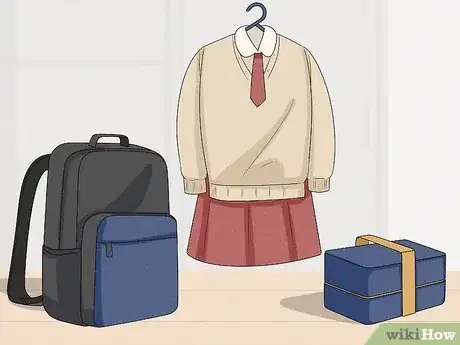
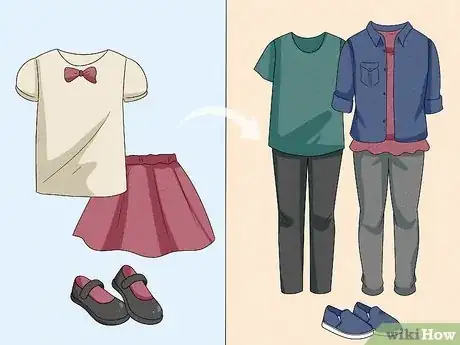
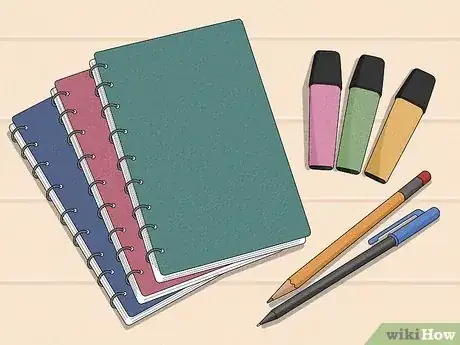
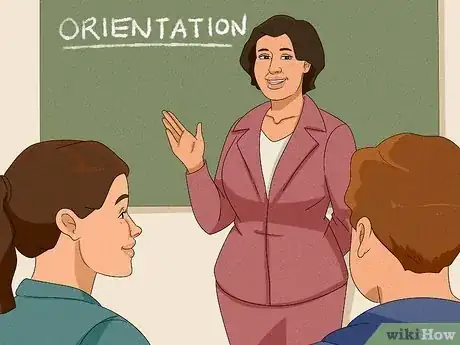
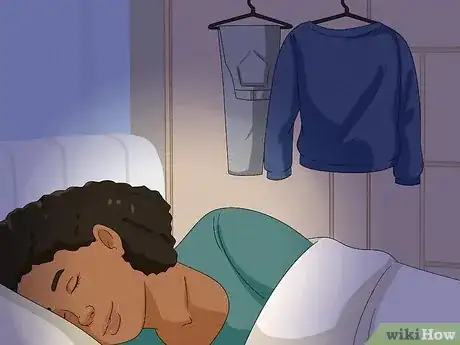
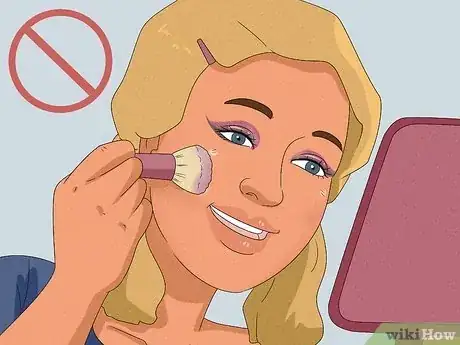

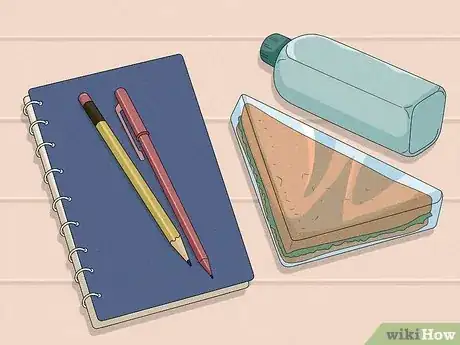
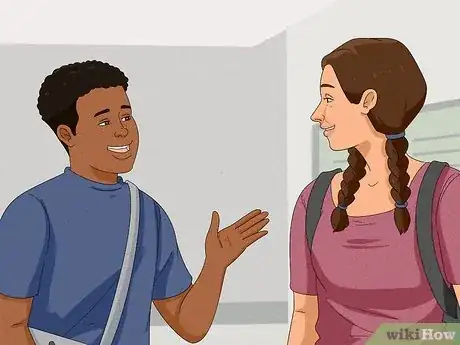
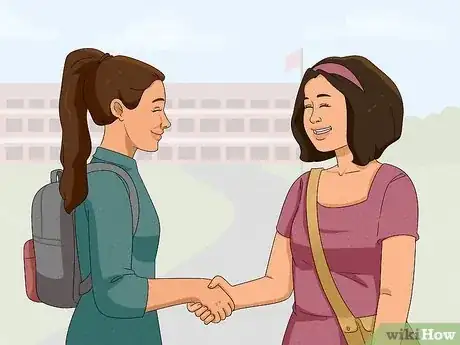

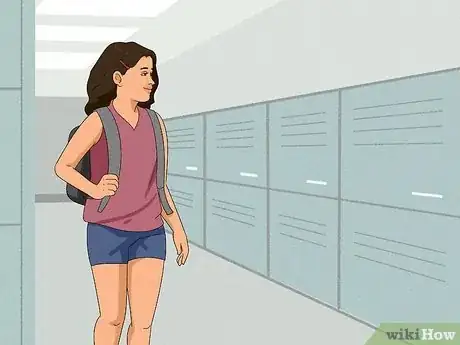

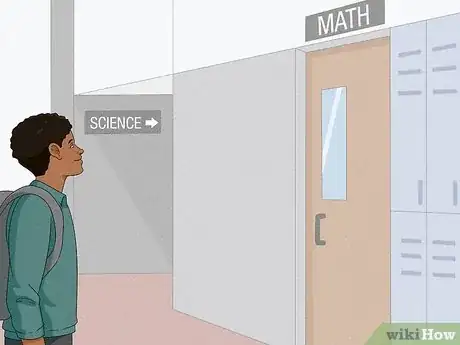
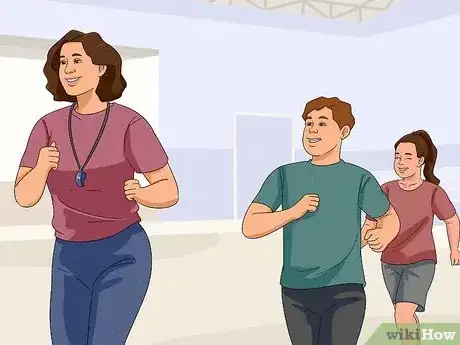
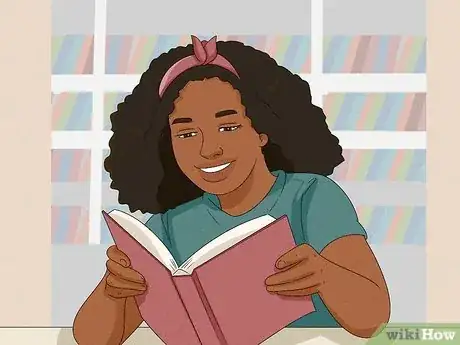
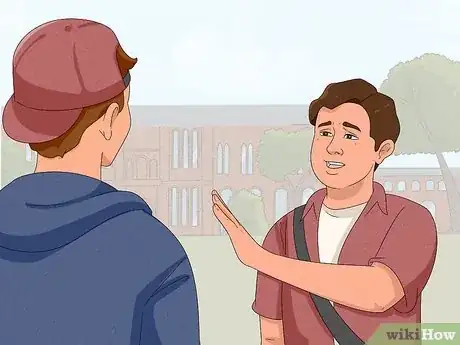
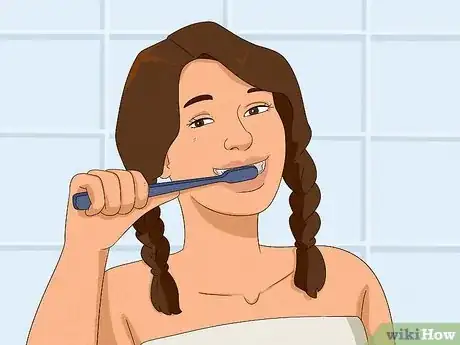
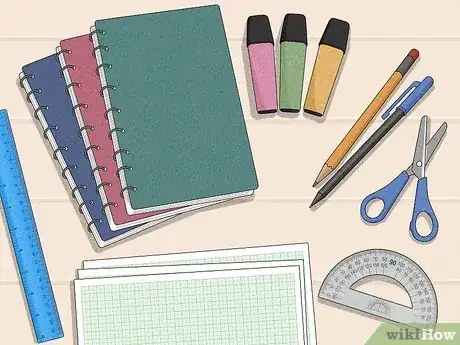
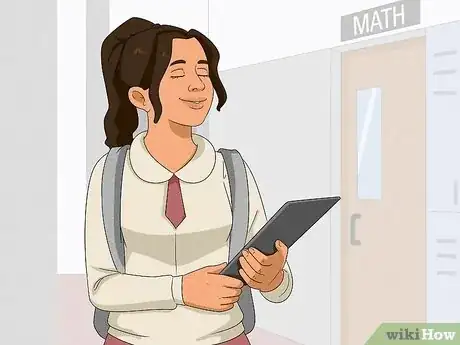


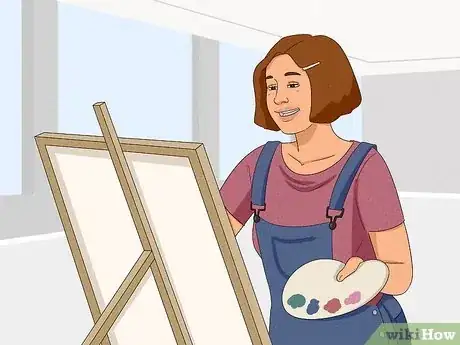
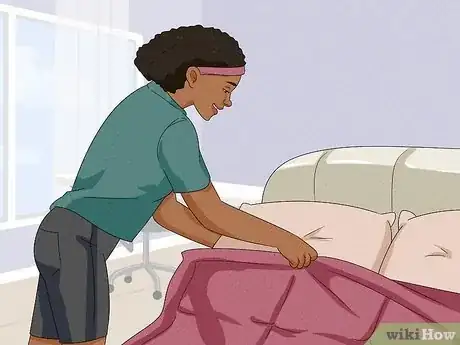
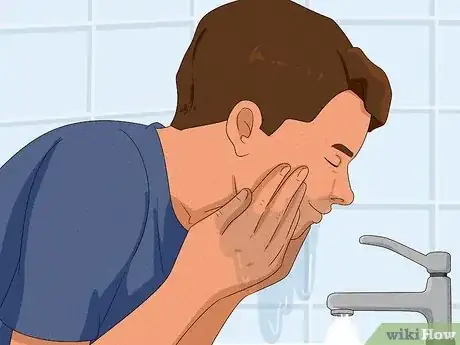
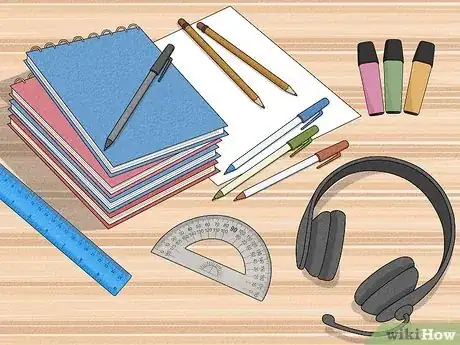


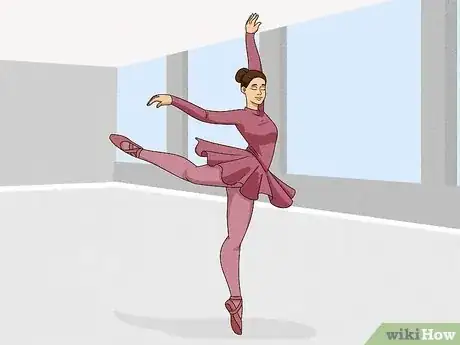

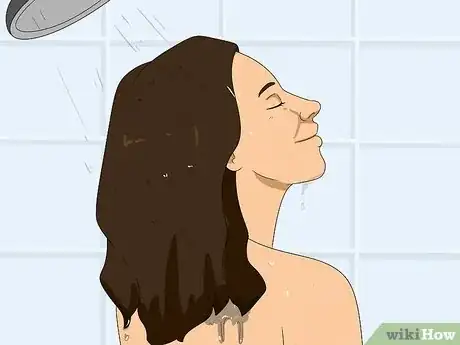
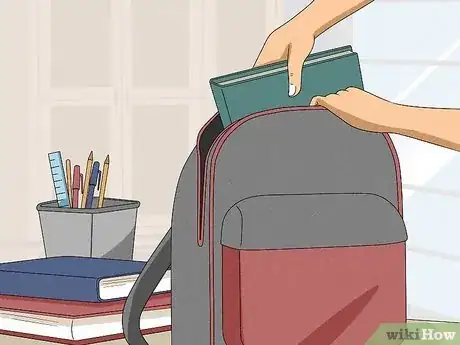
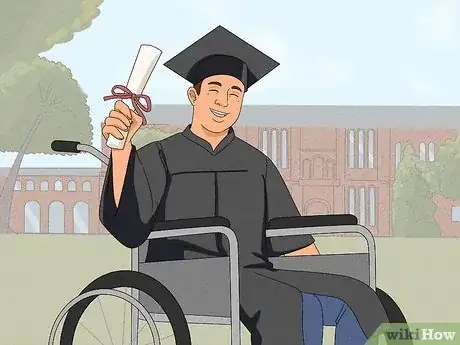
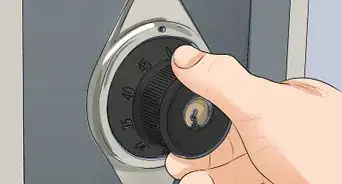
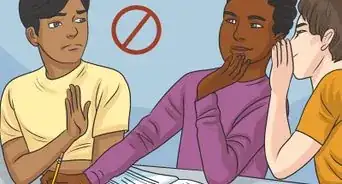
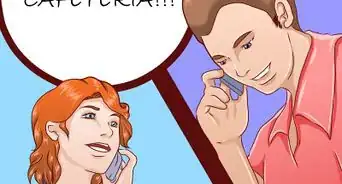
-Step-25.webp)

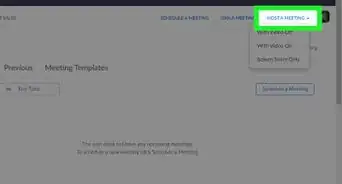

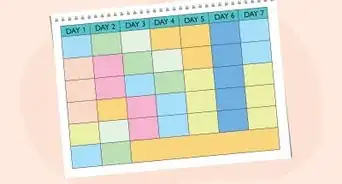


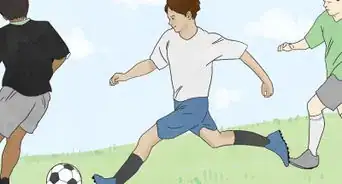

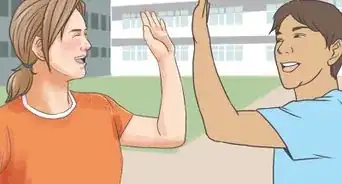
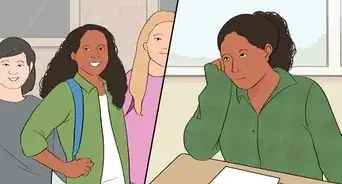










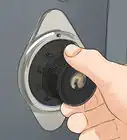
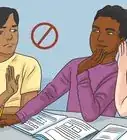

-Step-25.webp)



































